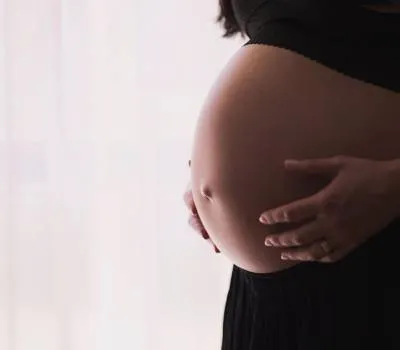During pregnancy, all sorts of bothersome discomforts can arise. One of them is varicose veins. The lower extremities are most often affected. In addition to their questionable aesthetic value, they also pose a risk of dangerous complications and require control. Should varicose veins in pregnancy be treated?
Varicose veins in pregnancy- causes
The duration of pregnancy is a period of increased risk of venous thromboembolism, as well as venous insufficiency manifested, among other things, in the following ways. varicose veins. They occur due to obstructed flow of venous blood in the vessels and abnormalities related to the functioning of the valves. During pregnancy, venous pressure in the lower extremities increases and venous flow decreases. In addition, there is a dilatation of venous vessels. Physiological changes in the body of the mother-to-be promote the formation of varicose veins. Varicose veins of the anus or vulva also appear due to, among other things. Pressure of the enlarging uterus on the venous vessels.
The higher risk of varicose veins in pregnancy is quite influenced by genetic factors. Hormonal changes in the pregnant woman’s body also play an important role. In addition, mothers-to-be struggling with overweight and obesity, as well as those with a history of thrombosis, are more prone to varicose veins.
Varicose veins in pregnancy-what are the risks?
Venous insufficiency itself is not a threat to the course of pregnancy. However, it is important to keep in mind that varicose veins can lead to superficial phlebitis or pulmonary artery embolism. They are also a risk factor for thromboembolic disease. Varicose veins formed during pregnancy usually do not disappear after delivery and require medical intervention.
Can varicose veins be prevented during pregnancy?
It is recommended that a woman go to a phlebologist for a consultation while she is still preconception. He will evaluate with the help of Doppler ultrasound the capacity of the venous vessels and recommend further management.
To prevent varicose veins during pregnancy, mothers-to-be should avoid sitting or standing for long periods of time. A healthy diet and proper hydration are also important, as well as regular physical activity (after consultation with a gynecologist). Unfortunately, whether varicose veins appear during pregnancy is not entirely within our control, and much depends on individual predisposition.
Varicose veins in pregnancy- treatment
A pregnant woman struggling with varicose veins, both before, during and after pregnancy, should be under the care of a phlebologist. However, treatment of varicose veins, such as with a laser, is recommended before pregnancy or as soon as the baby is born. For the duration of pregnancy, a phlebologist may recommend wearing special stockings or compression socks. If the mother-to-be has a high risk of thromboembolism, heparin injections may be necessary.
Read also:
Hemorrhoids in pregnancy – causes, symptoms, ways to prevent them
Sources: https://www.dopplerinstytut.pl/
Rate this article:











